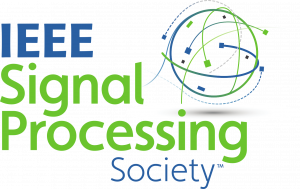Program
Vote for the 5-MICC winner
The final phase of 5-MICC is open! Watch the three finalists and vote for the winner. More information at 5-MICC page.
On behalf of the IEEE Signal Processing Society, the organizing committee is delighted to invite you to the 45th International Conference on Acoustics, Speech, and Signal Processing, ICASSP 2020, to be held fully virtually, between May 4 and May 8, 2020! ICASSP is the world’s largest and most comprehensive technical conference focused on signal processing and its applications. The 2020 conference will feature world-class presentations by internationally renowned speakers, cutting-edge session topics and provide a fantastic opportunity to network with like-minded professionals from around the world.
We are excited for the opportunity to innovate by creating an engaging virtual conference that will be rewarding for both presenters and attendees. Immediate guidance for authors, with full details will be announced soon. So far, please follow the instructions in the message on Covid-19 in this webpage.


The famous Shannon-Nyquist theorem has become a landmark in the development of digital signal and image processing. However, in many modern applications, the signal bandwidths have increased tremendously, while the acquisition capabilities have not scaled sufficiently fast. Consequently, conversion to digital has become a serious bottleneck. In this talk, we present a framework for sampling and processing a large class of wideband analog signals at rates far below Nyquist in space, time and frequency, which allows to dramatically reduce the number of antennas, sampling rates and band occupancy.
A crucial ingredient of deep learning is that of learning representations, more specifically with the objective to discover higher-level representations which capture and disentangle explanatory factors. This is a very ambitious goal and current state-of-the-art techniques still fall short, often capturing mostly superficial features of the data, which leaves them vulnerable to adversarial attacks and insufficient out-of-distribution robustness. This talk will review these original objectives, supervised and unsupervised approaches, and outline research ideas towards better representation learning.
Inference of functions from data is ubiquitous in Signal Processing and Statistical Learning. This talk deals with Gaussian process (GP) based approaches that not only learn over a class of nonlinear functions, but also quantify the associated uncertainty. To cope with the curse of dimensionality, random feature Fourier (RF) vectors lead to parametric GP-RF function models, that offer scalable forms of Wiener’s minimum mean-square error approach. The talk will next touch upon deep GP architectures, and further focus on ensembles (E) of GP-RF learners, each with a distinct kernel belonging to a prescribed dictionary, and jointly learning a much richer class of functions. Whether in batch or online forms, EGPs remain robust to dynamics captured by adaptive Kalman filters. Their performance will be benchmarked using regret analysis. Broader applicability will be also demonstrated for policy evaluation in reinforcement learning. Case studies will highlight the merits of EGPs, and pay tribute to the ensemble of SP giants, namely Gauss, Fourier, Wiener, and Kalman.
The advent of spatial processing in multiantenna wireless communications has transformed the design of mobile networks allowing us to meet the tremendous demands for data and services in mobile applications. Signal processing techniques implemented in base-band transceivers enables the efficient exploitation of radio spectrum, increased gain to improve coverage, more reliable and secure transmissions and improved energy efficiency. We will focus on the challenges of spatial precoding techniques implemented on the transmit side of wireless systems. Early developments on transmit beamforming and spatial division multiple access will be reviewed as well as space-time coding and more recent developments on symbol-level precoding.
Dramatic advances in language processing, speech recognition and synthesis technology have opened up a range of applications that involve understanding speech. This talk describes the challenges, methods and opportunities for integrating speech and language technology with an emphasis on conversational speech, the next frontier for speech systems. Conveniently, both speech and language processing now leverage neural representations, including similar algorithms. However, conversational speech is quite different from the written text that underlies most language technology. It lacks punctuation and is often disfluent. Handling these issues, and recognizing speaker intent and sentiment, requires attending to the intonation and timing of words and phrases, which links speech to conversational understanding.
ICASSP is the world’s largest and most comprehensive technical conference focused on signal processing and its applications. The 2020 conference will feature world-class presentations by internationally renowned speakers, cutting-edge session topics and provide a fantastic opportunity to network with like-minded professionals from around the world.
ICASSP 2020 is going to have over 8000 participants which make this year’s event the largest ever ICASSP conference over the past 45 years. This will provide a great opportunity and arena for industry participation and exhibition. During this conference, you will visit the world largest international companies and publishers who will also sponsor a number of prestigious awards.
The final phase of 5-MICC is open! Watch the three finalists and vote for the winner. More information at 5-MICC page.
We announced the 3 finalists of the Signal Processing Cup 2020! Are you one of them? More information at SP Cup page.
We updated the information related with Virtual Registration and Refund Policy. More information at Registration page.
We uploaded the instructions for video recording of your presentation. Please, follow the instructions described in the Author Video Instructions page. More info here.
We are so honoured to announce the 2020 IEEE Awards: 2020 IEEE JAMES L. FLANAGAN SPEECH AND AUDIO PROCESSING AWARD to HYNEK HERMANSKY, for contributions to speech processing and feature extraction for robust speech recognition. Read more…
We have released the industry program. You will find speakers, panels, special sessions and speaker sessions. More information at Industry Program.